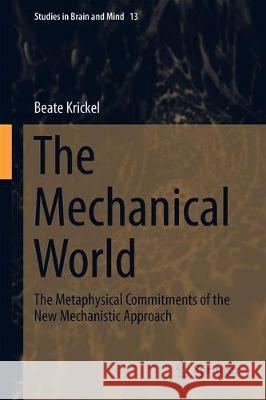The Mechanical World: The Metaphysical Commitments of the New Mechanistic Approach » książka
topmenu
The Mechanical World: The Metaphysical Commitments of the New Mechanistic Approach
ISBN-13: 9783030036287 / Angielski / Twarda / 2019 / 163 str.
Kategorie BISAC:
Wydawca:
Springer
Seria wydawnicza:
Język:
Angielski
ISBN-13:
9783030036287
Rok wydania:
2019
Wydanie:
2018
Ilość stron:
163
Waga:
0.41 kg
Wymiary:
23.88 x 22.61 x 1.27
Oprawa:
Twarda
Wolumenów:
01











